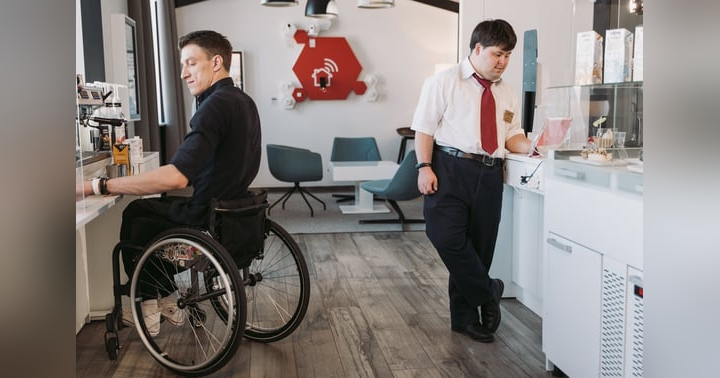The Human Equation: Why Community Is the Real Competitive Advantage

Seventy-nine percent of consumers say they want brands to create real connection, not just transactions. It’s a staggering number that reflects a deeper truth about business today: people crave belonging.
On The Bliss Business Podcast, Jonathan Weathington, CEO of Shuckin’ Shack Oyster Bar, shared how community is not a marketing tactic, but the foundation of sustainable growth. Since 2014, he has led Shuckin’ Shack from a small Wilmington NC, restaurant into a nationally recognized franchise built on authenticity, empathy, and connection.
Jonathan’s philosophy is simple: “The only thing that matters is the people within your four walls.”
Community as Culture
For Jonathan, community and culture are inseparable. “Culture is not something you dictate,” he explained. “It’s the sum of your parts.” His approach begins with treating employees as the heart of the experience. When they feel valued and supported, that energy transfers to the guests.
Rather than viewing customers and staff as separate groups, Shuckin’ Shack sees them as one interconnected community. This perspective has shaped everything from how the brand hires to how it serves. The goal is not to manage people, but to empower them to be themselves.
Purpose in Action
Shuckin’ Shack’s community ethos extends beyond its restaurants. The company’s Fresh & Raw Tour, a live music series that raises money for Blood Cancer United, has become a cornerstone of its purpose. The effort began when co-founder Matt Piccinin was diagnosed with leukemia, sparking a mission to support cancer research nationwide.
In just three years, the initiative has raised more than $200,000. Yet, Jonathan says the true impact is measured in the stories shared by survivors and families who return year after year. “It rallies your community,” he reflected. “People want to be part of something that matters.”
Systems That Serve People
When turnover in the restaurant industry soared to 200 percent in 2021, Shuckin’ Shack went the opposite direction, reducing turnover by 40 percent. The reason? They listened.
Instead of forcing rigid schedules, the team adapted to employees’ real lives, offering flexibility, benefits, and empathy. It wasn’t a cost. It was an investment. “I know what it takes to train an employee,” Jonathan said. “I’d rather pay $200 a month to keep someone who’s great than spend $2,300 to replace them.”
He also rejects the scripted interactions that dominate chain restaurants. Employees don’t recite prewritten greetings or promotions. “We just ask them to read the room and talk to people,” he said. “That’s it. No song and dance. Just human connection.”
Measuring Connection
Community, while deeply human, still shows up in the data. At Shuckin’ Shack, the more they focus on relationships, the higher the guest counts, ticket averages, and loyalty scores climb.
“The more we pour into the qualitative side, the quantitative side follows,” Jonathan said. “When you create an environment people want to stay in, everything rises.”
The team measures success through three simple metrics:
Did the customer have a good time?
Will they come back?
Will they tell others?
Everything in the business ties back to these questions.
Purpose and Authenticity
Purpose, for Jonathan, isn’t a slogan, it’s a daily practice. He encourages his team to bring intention into small moments, from helping a stranger take a photo to starting every staff meeting by sharing one positive thing that happened that week.
“We don’t start with numbers,” he explained. “We start with gratitude.” That habit fosters connection and reminds the team that businesses are run by humans, not the other way around.
At its core, Shuckin’ Shack’s purpose is to create an authentic environment where people can be themselves. That authenticity has turned the brand into what Jonathan calls a “cult-like following.” Guests have even chosen the restaurant as the setting for weddings—a powerful symbol of belonging that transcends business.
Leading with Love
Jonathan believes love belongs in business. “Ask yourself,” he said, “what’s the difference between a neighborhood and a neighbor? A neighborhood defines a place. A neighbor is a person. When you love both, there’s nothing like it.”
His perspective reveals that the future of business is not found in technology or tactics, but in trust. Companies that care deeply about people don’t just perform better, they endure.
Key Takeaways
• Community and culture are two sides of the same coin.
• Listening to employees drives retention and engagement.
• Purpose-led initiatives unite teams and customers.
• Emotional intelligence transforms connection into loyalty.
• Love is not weakness in business; it is strength in action.
Final Thoughts
Jonathan Weathington reminds us that great businesses are not built on transactions, but on trust. Community is not a side project; it is the strategy. When leaders listen, care, and create spaces where people can be themselves, they don’t just grow a company, they build a movement.
Check out our full conversation with Jonathan Weathington on The Bliss Business Podcast.



